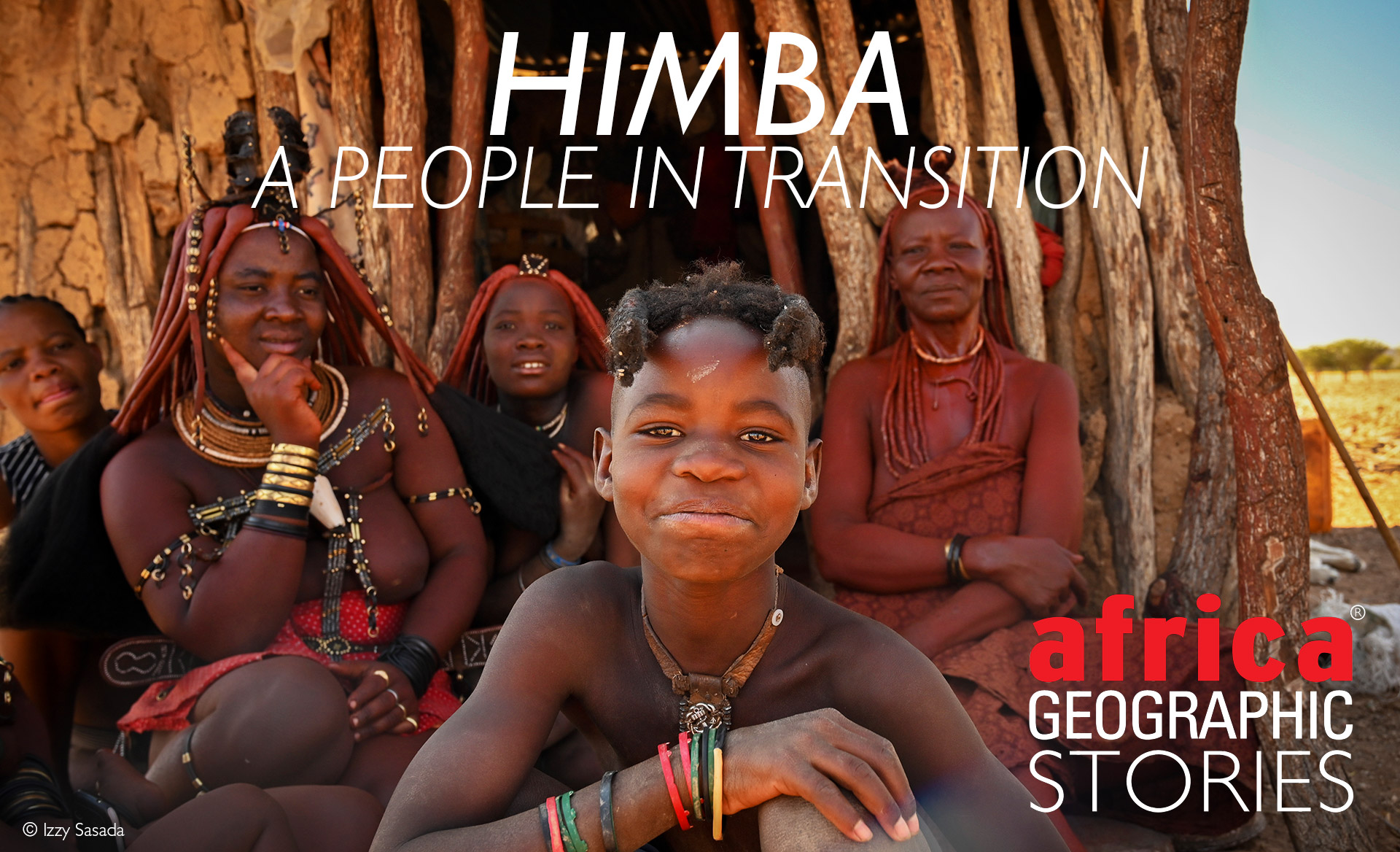

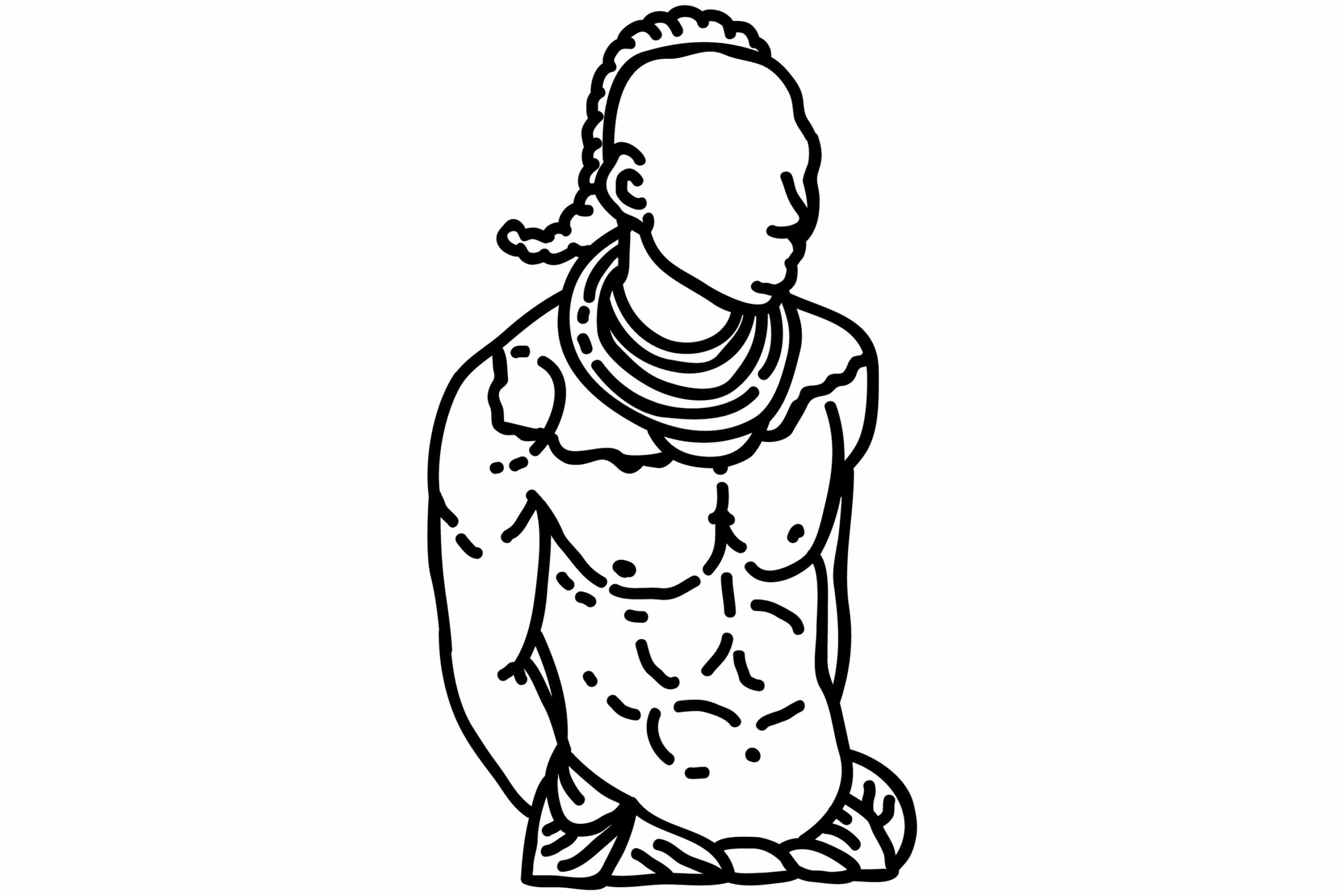
Deep in the heart of Kaokaland in the Namibian desert live the Himba people – a group of semi-nomadic pastoralists who have lived there for hundreds of years. But climate change, combined with a lack of government support and ongoing marginalisation, is forcing this iconic tribe to choose which parts of modernity to claim, and which to reject.
Namibia’s iconic tribe
If you are familiar with any of Africa’s tribal groups, it is probably the Himba. The tribe are renowned for their unique adornments and their continued adherence to tradition. Women of the tribe are bare-breasted and heavily decorated with symbolic jewellery. They cover their bodies with ‘otjize’, a mixture of animal fat and ochre which gives their skin and hair a reddish hue.
Traditionally, these cattle-herding tribes live in wooden huts which encircle a sacred ancestral fire, and daily work revolves around rearing and herding livestock.
The Himba people have long avoided contact with the modern world, continuing their quiet lives of pastoral cattle-herding in the barren corner of north-western Namibia for generations. The region had no direct Western influence until well into the 20th century, and little is known about the inhabitants of Kaokoland before the first European expeditions in the remote area.
Consequently, the Himba people have often been presented (in particular in recent tourism brochures) as timeless and archaic, representing a ‘forgotten’ or ‘ancient’ age of Africa.

A foot in each world
Whilst presented as isolated from the modern world, in reality, many Himba people are now moving towards modernity. As the tribe is in transition, Himba culture is not static nor homogenous, and while some aspects of their lifestyle are being left behind, new opportunities await those moving from the barren desert to towns.
For those members of the tribe keen to take the plunge, the nearest town is Opuwo, the capital of the Kunene region. The small settlement contains schools, shops and petrol stations, and for many newcomers, it is the first taste of life in the 21st century.
For an unfamiliar traveller, it is indeed a sight. The town is a melting pot of Namibia’s other tribes too, and large groups converge on the streets of Opuwo, drinking beer, chatting on mobile phones, and gathering in their dozens. Seen alongside the Himba tribe are the Herero people, known for their extravagant Victorian-style dresses, and also members of the Zemba group.


Push factors
Compared to traditional living, life in towns such as Opuwo may seem more convenient, but in reality, there are more push than pull factors causing people to move from rural homesteads.
Mr Ondoba, a Himba traditional chief whose original homestead is 180km north of Opuwo, explains why his family has made the journey south. “Life has become far harder for us in recent years,” he says. Sitting in the shade of one of Opuwo’s many bars, he has a miniature spear tucked behind his ear which he uses to snort ground tobacco between sentences. “We lost all of our cattle to drought a few years ago, and that’s why we’re here. Life without cattle – it is impossible.”
Mr Ondoba now owns a small garden in Opuwo to harvest maize and other plants. While he and his family have enough to survive, his current lifestyle is a far cry from that established in the historic practice of cattle-herding.
The loss of cattle makes it practically impossible for traditional life to continue, as cattle are the basis for subsistence; the need to graze cattle has dictated the Himba’s nomadic way of life for hundreds of years. Cattle have cultural significance too, determining social status, and forming an integral part of marriage and dowries.

Many other Himba residents in Opuwo share a similar story to Mr Ondoba. Down the street, sisters Veerii and Ondu sit on the hard floor, drinking beer. They, likewise, have moved to Opuwo in recent years. “Before, in Onjuva [a homestead about an hour’s drive away] things were better for us. We could live easily. But our cattle were taken – we think by a lion, and we could not stay.”
Namibia’s Community-Based Natural Resource Management (CBNRM) programme provides compensation when livestock is lost to predators through the human-wildlife conflict compensation scheme. But it appears the scheme’s efforts are proving inadequate for many.
According to Dr Michael Bollig, an anthropologist who has conducted extensive fieldwork in the Kunene region, the human-wildlife conflict compensation is a “cumbersome process, whereby the conditions are nonsensical.”
“Compensation is a tricky business,” he explains, “conservancy budgets are often too small to adequately compensate for lost livestock, and local communities do not have the administrative infrastructure right away to compensate for this pertinent issue – how could they?’
“Resultantly, compensation is returned at a quarter of the market price for cattle, sometimes after far too great of a waiting time, and the management is so complicated that very few are successful.”
Veerii and her sister’s experience supports this. “We knew we were on a list waiting for compensation, but we never received the money.” Veerii explains, “if the government helped us just by providing say two or three goats, we could rebuild our livestock and we would not have to beg here.”
Livestock loss is exacerbated by extreme droughts which have plagued the region in recent years. Some scientists believe these extreme conditions to be linked to climate change. As global temperatures are set to rise further in the coming decades, the situation in Kunene reflects the general global trend of climate change impacting socio-economically vulnerable groups, from countries that have contributed the least to global emissions.
New problems
For all their hopes of a new life in Opuwo, things are perhaps a disappointment for many Himba people who have made the move. Life in a town requires money, and it is difficult for newcomers to find employment. Many Himba people now survive from the government’s pension scheme, often with one person’s pension handout providing for the entire family.
In homestead Otjakati, just an hour’s drive from Opuwo, life is far quieter. Here, the elders worry about the fate of those looking for employment in towns.
‘”They leave looking for a job, but they won’t find one. Even the most educated Himba won’t get a job,” one of the elders explains. “Then, they turn to things like drinking and end up spending all of the money on alcohol, and then the problems start, like crime and prostitution.”
Alcoholism certainly appears to be a problem amongst Himba urbanites, and the streets of Opuwo are lined with numerous bars.
Discrimination, and favouritism towards dominant tribes are felt to be reasons why few Himba people attain employment. “Most Himba cannot even get a sweeping job,” Ueri tells me, “people think we are dirty.”
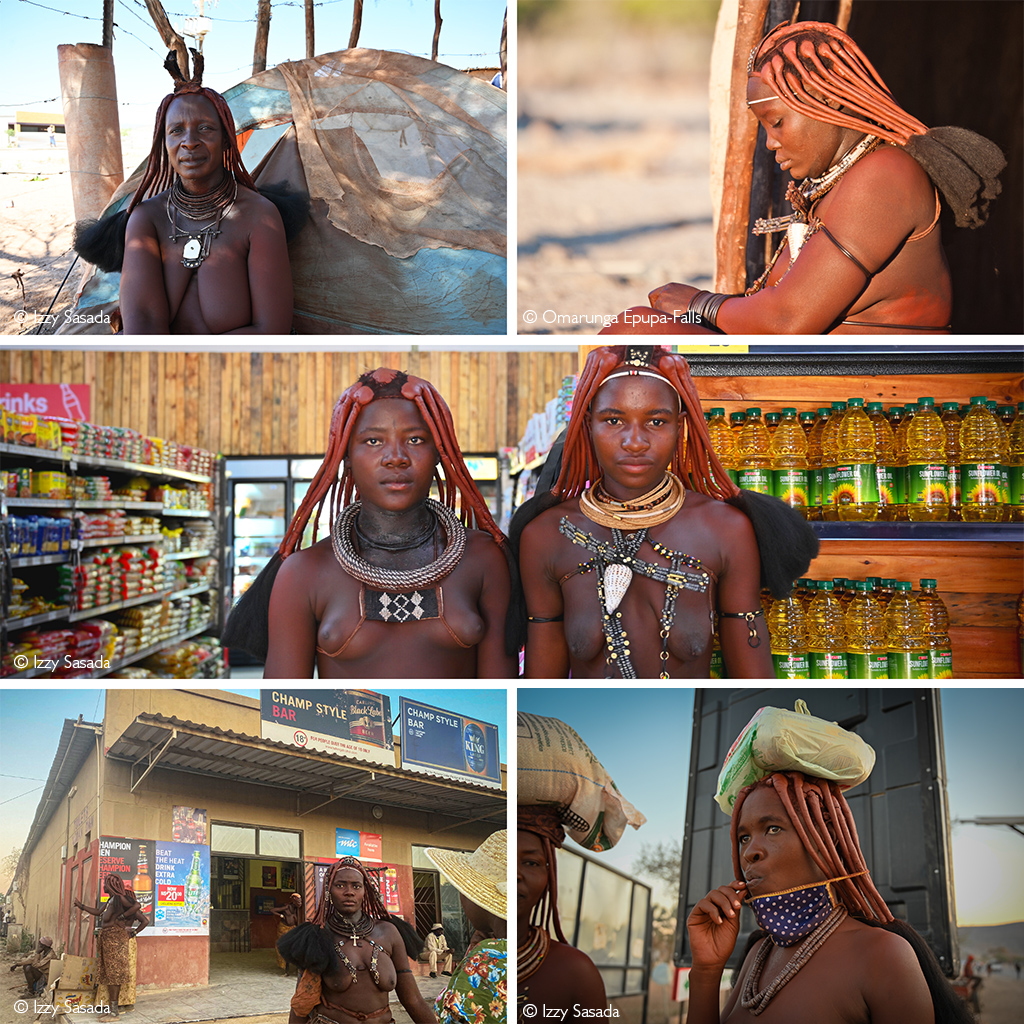
A tribe in transition
The world for the Himba people is changing. With inadequate compensation when cattle are lost to predators, exacerbated by an increased frequency of droughts, it is likely that more Himbas will be forced towards towns like Opuwo in search of employment.
Anthropologist and conservation pioneer Margie Jacobson, who has spent decades conducting fieldwork with the Himba tribe, explains how this move is impacting the group.
“Whilst they continued to be great subsistence herders for generations after contact with so-called ‘modernity’,” she says, “now their social systems are beginning to erode.”
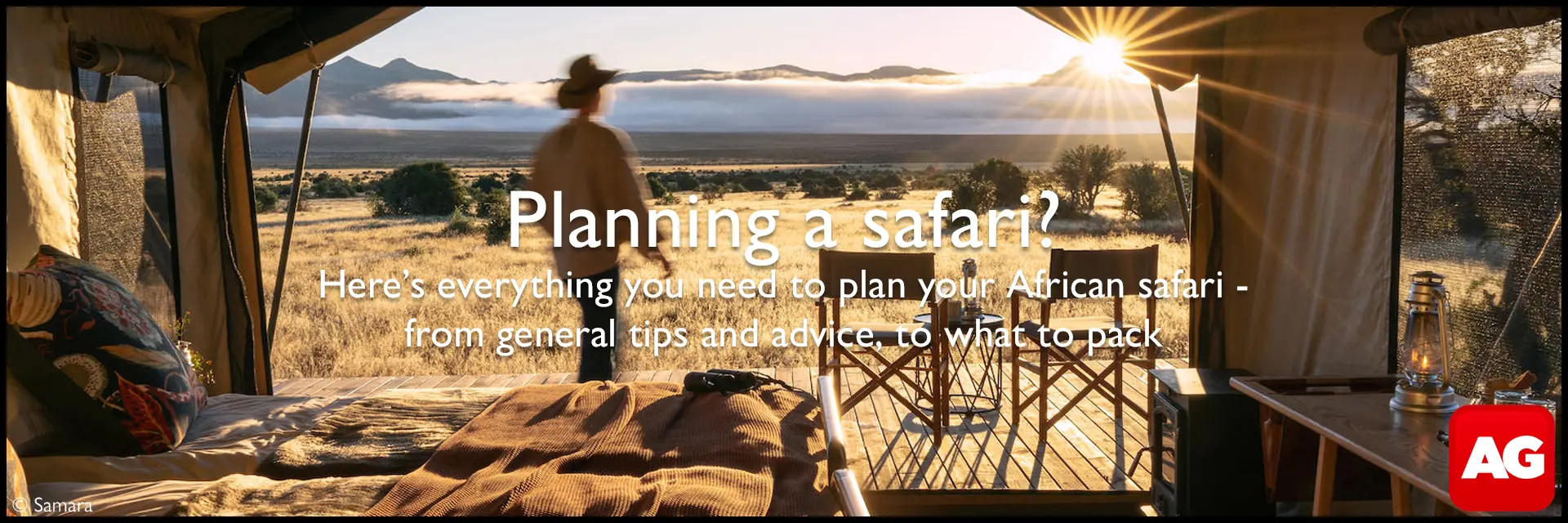
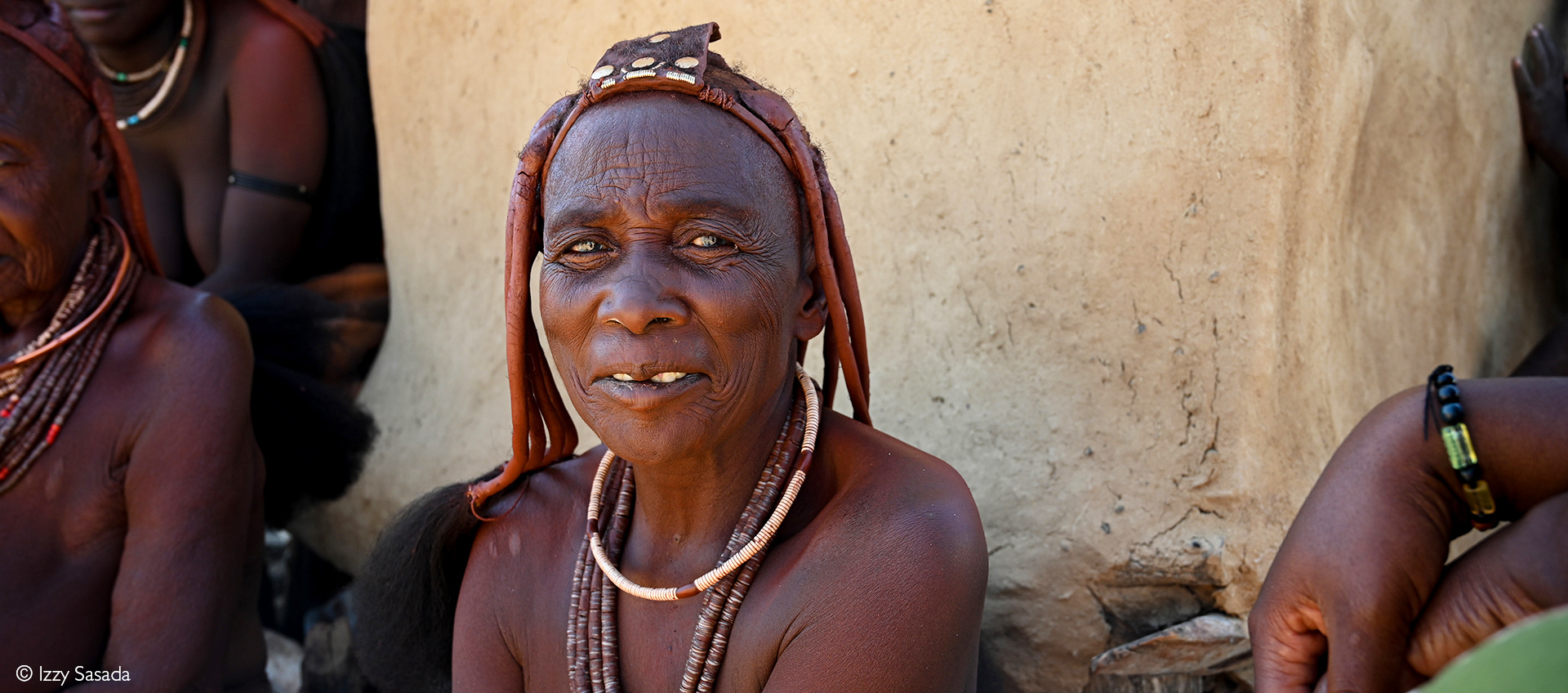
“Now,” she explains, “those… democratic and powerful structures are breaking down. With the introduction of euro-centric education, party politics, wage labour and a cash economy, in many cases, every man is for himself.”
Recent research also indicates a loss of indigenous knowledge as Himba people move to towns, with cosmopolitan Himbas experiencing a reduced ability to focus during optical tests than their pastoral counterparts (much like urban people who also exhibit this reduced ability to focus).
Although the Himba people now face a plethora of previously unfamiliar problems as the modern world encroaches upon them, their historical resilience in the face of change should give us hope. Culture is not static, and the Himba should not be perceived as fossilised relics of a past time.
And why shouldn’t they enter the ‘modern’ world?
“The Himba are people,” says Margie, “they want the things that we want, and they have every right to them.”
Asking the elders at Otjakato “where will you be in 20 years’ time?” they assert in response, “we will still be in the homestead, where we belong… but of course, we will visit Opuwo.”
Note: some names have been changed.
Resources
To see images of Himba culture, view a photo series captured by travel photographer Matthieu Rivart.
For insight into Himba traditions and history, read more here.
Northern Namibia and other African safari destinations will benefit from the growth of tourism as a revenue generator that is sensitive to the needs and cultues of local people.
To comment on this story: Login (or sign up) to our app here - it's a troll-free safe place 🙂.![]()




